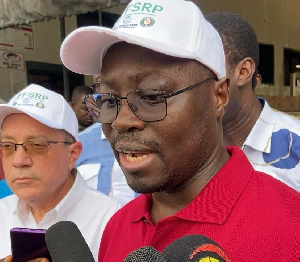Less than 12 percent of smallholder farmers use improved seeds and fertilisers, Deputy Minister of Agriculture in Charge of Annual Crops, Dr. Sagre Bambangi, has disclosed.
He lamented that the low use of improved seeds and fertilisers leads to low productivity in the country, thereby affecting food security.
“With this low level of usage, improvement in productivity could be a challenge; therefore, innovative interventions in agriculture are needed to meet the growing needs of food, industrial products and employment considering the population’s fast growth-rate – which is expected to increase from the current level of 27 million to 37 million by 2030, and to 52.5 million by 2050,” he stated.
The Deputy Minister said this at a three-day seed sector support workshop held for experts in the agricultural sector at Tamale.
The workshop, organised by the Savannah Zone Agricultural Productivity Improvement Project (SAPIP) – a Ministry of Food and Agriculture (MOFA) initiative, was to help improve efficiency of the national seed system.
It was also to increase delivery of high-yielding seeds to farmers to enhance production.
The five-year project, with a US$39million facility from the African Development Bank and US$11million from the government of Ghana, seeks to transform the agricultural value chain for food and nutrition security, jobs and wealth-creation.
“The use of improved inputs among smallholder farmers in the country is very low as compared to other countries in the sub-region, which is affecting our production,” Dr. Bambangi lamented.
He added that for the agriculture sector to continue impacting positively on Ghana’s population, “Our agricultural productivity growth should outstrip our annual population growth rate by 2.2 percent”.
He stressed that the ministry is putting in place measures to ensure the adoption of quality and high-yielding seeds, fertilisers, pest and post-harvest management practices to meet the growing demand for food and raw materials for industry.
Business News of Saturday, 19 January 2019
Source: thebftonline.com













